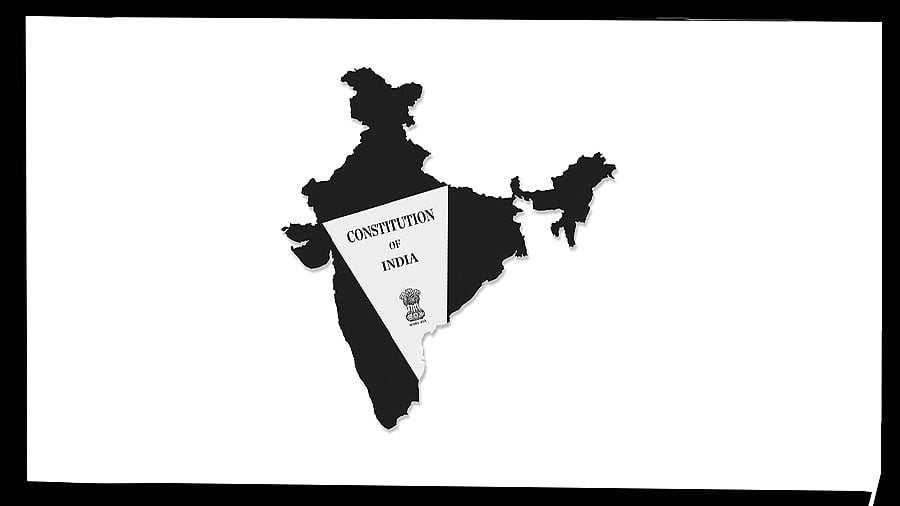
As we celebrate the 75th anniversary of the adoption of the Indian Constitution, on November 26, it is time to reflect on its evolution and, more importantly, on ways to engage with its future. The Constitution was created at a tumultuous time – a rare occurrence when a document of this character, which is pregnant with hope, aspirations, rights, freedoms, and promises, was written when there was widespread hopelessness, anxiety, violation of rights, and undermining
of freedoms.
The partition of India led to one of the largest mass migrations in history, with around 15 million people crossing borders to escape religious violence. It was also accompanied by horrific communal violence. Many were killed in massacres, riots, and other forms of violence, leading to mass displacement of people and a massive crisis involving refugees, nearly 10 million of them. The country was grappling with the impacts of the partition on the economy; there was widespread loss of property and livelihoods. Between 1947 and 1951, about 15 to 18 million people were forced to move across the border of Punjab, in either direction, and 2.3 to 3.2 million people lost their lives during the violence that occurred during the partition.
The population of the British Raj in 1946 was 415 million which became 346 million in post-partition India. On the eve of independence, it was roughly estimated that 80 to 90% of the Indian population was living in poverty. The literacy rate was below 16%, with female literacy level at just 7%. The mortality rate was very high with the infant mortality rate at 218 per 1,000. In 1947, about 75 million malaria cases were reported. Life expectancy at birth was only 32 years.
The fact that the framers of the Constitution were able to create a founding document through an elaborative, democratic, and consultative process during such turbulent times spoke volumes about the character of the people who laid the foundation of Indian democracy.
The legacy of the Indian Constitution can be primarily attributed to two essential factors: one, the inspiring freedom struggle and the constitutional foundations of democracy and governance. Granville Austin, in The Indian Constitution – Cornerstone of a Nation, observed, “India’s founding fathers and mothers established in the Constitution both the nation’s ideals and the institutions and processes for achieving them. The ideals were national unity and integrity and a democratic and equitable society. The new society was to be achieved through a social-economic revolution pursued with a democratic spirit using constitutional, democratic institutions…” The provisions of the Constitution, beginning with the Preamble, reflected this vision for the people.
The second key factor is the principle of universal adult suffrage which made every Indian a stakeholder in the democracy project. Alladi Krishnaswamy Ayyar, a member of the Constituent Assembly during the Assembly debates, observed, “The Assembly has adopted the principle of adult franchise with an abundant faith in the common man and the ultimate success of democratic rule, and in the full belief that the introduction of democratic government on the basis of adult suffrage will bring enlightenment and promote the well-being, the standard of life, the comfort, and the decent living of the common man.”
This was, indeed, a radical imagination of the future of Indian democracy, and this decision became central
to the efforts of successive governments in the last 75 years to work towards strengthening democratic traditions and practices through constitutional governance.
People are central to the process
Ornit Shani, author of How India Became Democratic – Citizenship and the Making of the Universal Franchise, observed that the election and its preparation played an important role in institutionalising democracy and in creating a tangible basis for the belief that everyone could become part of it…”the election process as a whole gave recognition to India’s diverse and multitudinous minorities, and provided real possibilities for them in the struggle for a place in the new spaces of power… The election, thus, became a means of acknowledging the deeply conflictual nature of India’s democratic politics. It demonstrated the constitutive unpredictability of India’s electoral democracy,” Shani observed.
As we look at the 100th anniversary of the adoption of the Constitution, in 2049, we need to recognise its enduring legacy. We should remember the prophetic words of the architect of the Constitution, B R Ambedkar, in his last speech to the Constituent Assembly – “...however good a Constitution may be, it is sure to turn out bad because those who are called to work it, happen to be a bad lot. However bad a Constitution may be, it may turn out to be good if those who are called to work it happen to be a good lot...” We should be mindful that the Constitution has served us well in the last 75 years and will continue to do so, but we need to work towards three critical aspects to make its working more effective.
First, there is a need to strengthen democratic institutions to fulfill their constitutional mandate. This has been a work in progress and requires greater attention. Second, we must promote civic education and awareness of the constitutional vision to develop enlightened citizenship. Third, it is critical to institutionalise a culture of respect for the rule of law through independent courts and institutions observing their constitutional responsibilities. In the Preface to The Indian Constitution – Cornerstone of a Nation, Granville Austin presciently observed, “During recent years it has become fashionable among some citizens to disparage the founders and their document. These individuals, disappointed by developments in
the country since 1950 have called for changing the Constitution, explaining that it has not “worked”. Such thinking, in my view, is misguided. Constitutions do not “work”, they are inert, dependent upon being “worked” by citizens and elected and appointed leaders.”
(The writer is a Rhodes Scholar and the Founding Vice Chancellor of
O P Jindal Global University)